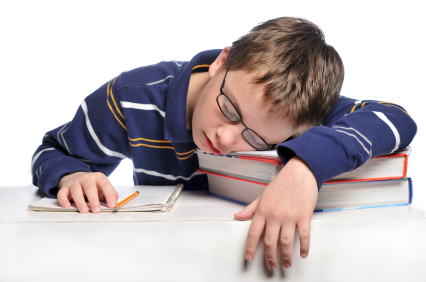Athletes who didn't get enough sleep the night before undergoing baseline neurocognitive concussion testing didn't perform as well as expected, say researchers presenting their work today at the American Orthopaedic Society for Sports Medicine's Annual Meeting in Chicago, IL.

"Our results indicate athletes sleeping less than 7 hours the night prior to baseline concussion testing did not do as well on 3 out of 4 ImPACT scores and showed more symptoms," said lead author, Jake McClure, MD from Vanderbilt University. "Because return-to-play decisions often hinge on the comparison of post-concussion to baseline concussion scores, our research indicates that healthcare providers should consider the sleep duration prior to baseline neurocognitive testing as a potential factor in assessing recovery."
Accurate baseline test scores important
When managing sport-related concussions (SRC), sports medicine physicians increasingly use serial neurocognitive assessments and self-reported symptom inventories in evaluating athletes' recovery and safety for return to play (RTP). Since post-concussive RTP goals include symptom resolution - which a recent study (2) found to be an unreliable indicator, standing alone, of RTP readiness - and return to neurocognitive baseline - usually measured at rest, but which another recent study (3) suggests should also be measured after exertion - clinical decisions rest on an understanding of modifiers of baseline performance.
Several studies have reported the influence of age, gender and sport on baseline neurocognitive performance, but few have assessed the potential effect of sleep. Researchers at Vanderbilt University theorized that athletes receiving less sleep prior to baseline testing would perform worse on neurocognitive metrics, and that decreased sleep would have no association with the number of reported symptoms.
Study findings
To test their hypotheses, researchers reviewed baseline symptom and ImPACT neurocognitive scores of 3,686 non-concussed athletes - 2,371 male, 1,315 female, 3,305 high school and 381 college-aged individuals, classifying them into three groups based on self-reported sleep duration the night before testing: fewer than 7 hours, 7-9 hours and greater than 9 hours.
What they found were significant differences in scores on three ImPACT test components (reaction time, verbal memory, and visual memory) in the group sleeping less than 7 hours but that visual-motor (processing) speed scores did not seem to be affected. Unexpectedly, they also discovered significant differences in the total number of reported symptoms associated with sleeping fewer than 7 hours.
Because concussion management and return to play decisions hinge in part on the comparison to a reliable baseline evaluation, "understanding factors which modify baseline testing, potentially including sleep, will continue to help lead to more accurate concussion testing, which ultimately equips clinicians with the best judgment to avoid returning athletes to competition earlier than necessary," said McClure.Source: American Orthopaedic Society for Sports Medicine
1. McClure DJ, Zuckerman SL, Kutscher SJ, Gregory A, Solomon GS. "Baseline Neurocognitive Test Results in Non-concussed Athletes: Does Sleep Matter?" Presentation paper, AOSSM (June 13, 2013)
2. Sandel N, Lovell M, Kegel N, Collins M, Kontos A. The Relationship Of Symptoms and Neurocognitive Performance to Perceived Recovery From Sports-Related Concussion Among Adolescent Athletes. Applied Neuropsychology: Child. 2012; DOI:10.1080/21622965.201 2.670680 (published online ahead of print 22 May 2012)(accessed June 5, 2012)
3. McGrath N, Dinn WM, Collins MW, Lovell MR, Elbin RJ, Kontos AP. Post-exertion neurocognitive test failure among student-athletes following concussion. Brain Injury 2013;27(1):103-113.
Posted July 13, 2013








